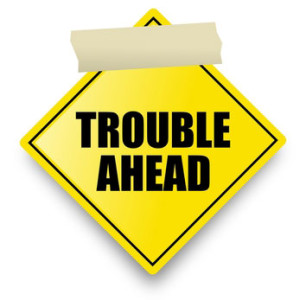 Now more than any other period in history has America been so divided (well, maybe during that pesky Civil War). Recent events in the news have proven this beyond the shadow of a doubt, particularly in terms of the Trayvon Martin/George Zimmerman case and the endless gun control debates.
Now more than any other period in history has America been so divided (well, maybe during that pesky Civil War). Recent events in the news have proven this beyond the shadow of a doubt, particularly in terms of the Trayvon Martin/George Zimmerman case and the endless gun control debates.
Lets’ be real…all of us fall on one side of such issues. Even if you’re one of those that claim to never watch the news to avoid these sorts of things, you probably lean to one side or the other.
As a business owner, it’s important not to let these sorts of issues take control of your message. This is especially true when you go online. Sure, it’s okay to have an opinion and support certain groups or actions, but you should try to keep it out of your social media circles.
Being overly vocal about certain subjects can alienate you from part of your audience and maybe even cause to become the center of online controversy. And while getting your name in front of more people seems glamorous, it can be terrible when mentioned in a negative light.
For this reason, you may want to avoid talking at length about any of the following:
The political story of the day: As of late, this has come down to gun control, race, gay marriage and other assorted hot topics. Wherever you stand on these issues, don’t let it become the focal point of blogs or any of your social media content.
Religion: This is a terrible landscape to get involved in online. Unless you are specifically asked in an interview, just don’t go there. And even if you are asked, keep it simple and generic.
Sports: This may seem silly, but sports can divide people just as much as politics depending on where you live or what team you root for. Friendly rivalries are okay but try not to demean or insult fans of other teams under any circumstance.
In other words, stop controversial behavior before it can even get started. After all, internet bickering and controversy really is one of those things that is better to watch from the sidelines rather than being directly involved.









